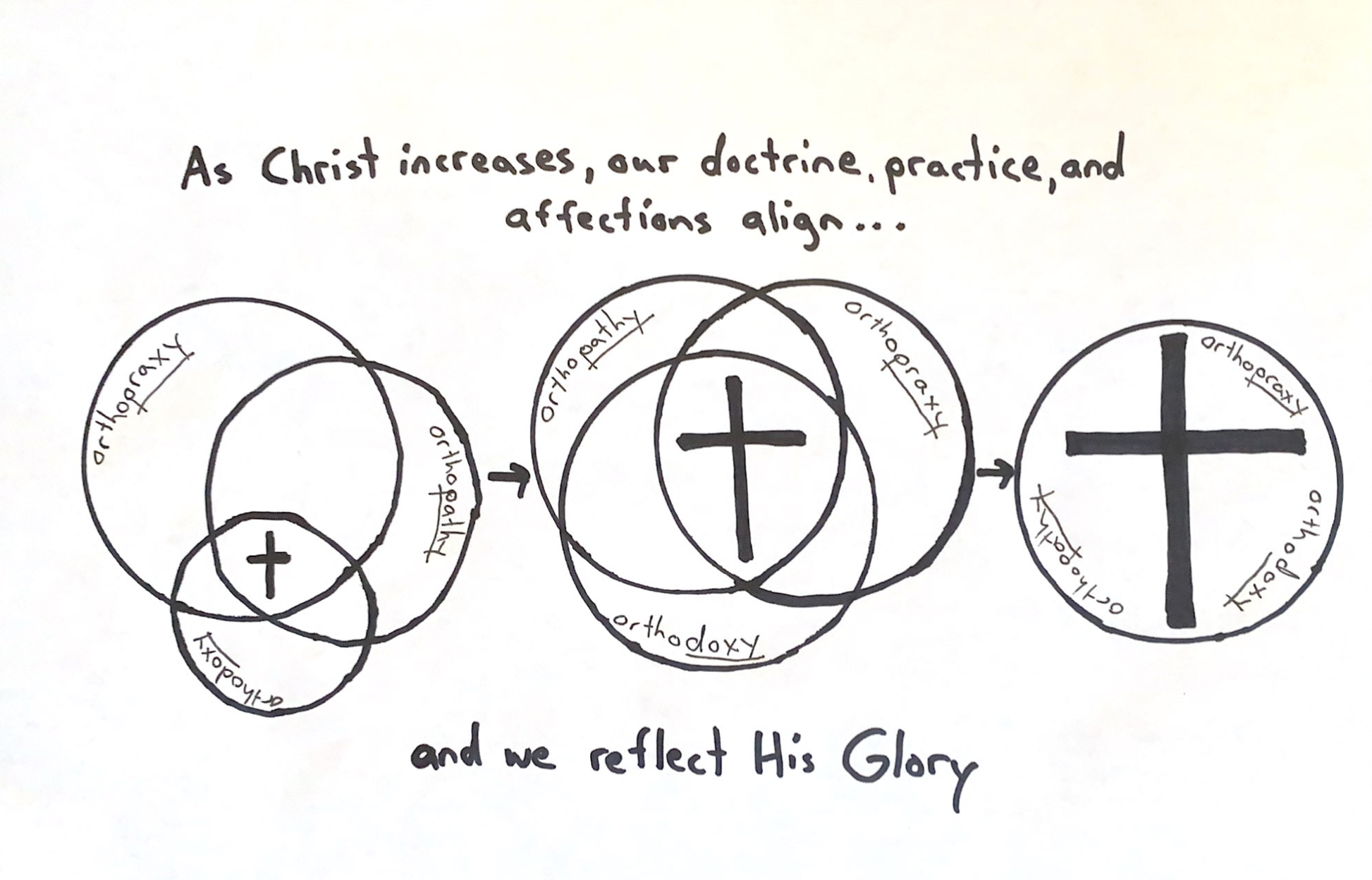Big John’s Pizza Queen owner Rob Johnson spreads the important message that “Everyone has a story to tell.” With over 7 billion people on earth, this means that there are currently billions of unique stories to be told. Incredibly, in every unique story from every nation, tribe, and tongue, one can find a strikingly common thread that ties each of our individual stories together. Suffering. Whether a pauper or a king, suffering is familiar. Misery loves company because misery HAS lots of company.
Though we do our best to avoid it, we are all familiar with suffering. When we pulled away from the loving hold of our all-knowing, ever-present, all powerful Creator (Genesis 3:6), we started a crack that has spread through the layers of blessed support He had graciously provided us with. The spreading of this crack has caused a deep and wide valley of spiritual, physical, mental, and emotional decay. What once was beautifully integrated has become a pit of death. Marred by sin, the abundant examples of His goodness have become disfigured. Intimate, shame-free relationships with others have become ridden with backbiting discord. Enjoyable, satisfying work has become sweaty, pointless drudgery. Sweet harmony with the animals, plants, and the rest of creation has become a dreadful siren reminding us of looming disaster. The deeper we fall in this pit, the more our perspective on God’s beauty is limited. Before long, we stop mourning the distance between us and God and start mourning our very existence. The house of misery becomes the most popular meeting place since ALL who enter can relate. Thankfully, here, in this house of misery, we can find the One with the power to mend what has been broken.
In How Jesus meets us in Pain, Danielle Cummins writes:
In all the training on how to grow closer to Jesus, suffering was never a chapter heading. We were big on Easter, light on Good Friday, and, as it turns out, life is often the opposite. Especially for most of humankind.
We cannot know our God who sits on the highest throne without knowing his journey into the deepest pit of despair. We must know His suffering to know Him. The Apostle Paul knew this. He understood that knowing Christ meant knowing the power of His resurrection AND the fellowship of His suffering (Phil 3:10). If we think we are being conformed into His image without becoming more acquainted with sorrows, we have set our sights on an idol.
Danielle Cummins states:
While human nature, privilege, and the American Dream may justify profound distaste for suffering, Calvary beckons us differently. Reconciliation with God implies further intolerance of this world and its atrocities and injustices, not a shielding from their effects.
The culmination of Christ’s suffering like us “in every way” on the cross should pierce through the thin facades we erect to help ignore our own suffering and the suffering of others. As He has borne our infirmities, by His Spirit we will find the power to connect with others in their suffering.
C.S. Spurgeon’ writes:
The afflicted do not so much look for comfort to Christ as he will come a second time… as to Christ as he came the first time, a weary man and full of woes.
In our suffering, we cannot understand how to get to God from our misery. We are often unaware that He is in our midst. As His children, we can find him and share Him in the midst of suffering.
Suffering binds us with God, as Jürgen Moltmann writes,
…when we feel pain we participate in his pain, and when we grieve we share his grief… People who believe in the God who suffers with us, recognize their suffering in God, and God in their suffering.
Speaking of those suffering with depression, Spurgeon drives this point home further:
When a person “has been through a similar experience” of depression, “he uses another tone of voice altogether. He knows that, even if it is nonsense to the strong, it is not so to the weak, and he so adapts his remarks so that he cheers” the sufferer “where the other only inflicts additional pain. Broken hearted one, Jesus Christ knows all your troubles, for similar troubles were his portion” too.
To my fellow sojourners in this broken world, let us not forget that His appearance was so disfigured beyond that of any human being and that his form was marred beyond human likeness. Though the degrees of our human suffering differ, there is one who has experienced all of it to make all things new. When we suffer, may His Word remind us that we are not alone in our pain and suffering.
In his book Spurgeons Sorrows, Zack Eswine writes of one way the great preacher stayed mindful that Christ was with Him on dark days:
Charles cherished a certain picture. The engraver portrayed the moment in Pilgrim’s Progress in which Christian panics, swallowed up by the deeps of a river and going under. The portrait shows Christian’s companion, named Hopeful, pushing up with his arm around Christian and lifting up his hands shouting, “Fear not! Brother, I feel the bottom.
With this picture on his mind, the preacher so familiar with sorrows then rejoices with those listening to him. “This is just what Jesus does in our trials. “Charles proclaims. “He puts his arm around us, points up and says, “Fear not! The water may be deep, but the bottom is good.”
Jesus is the good shepherd, He remains present in all ways when things get difficult. We know He is above. May we also remember His love for us that has caused Him to go below. We can find Emmanuel in our suffering.
—Roger Garrison






